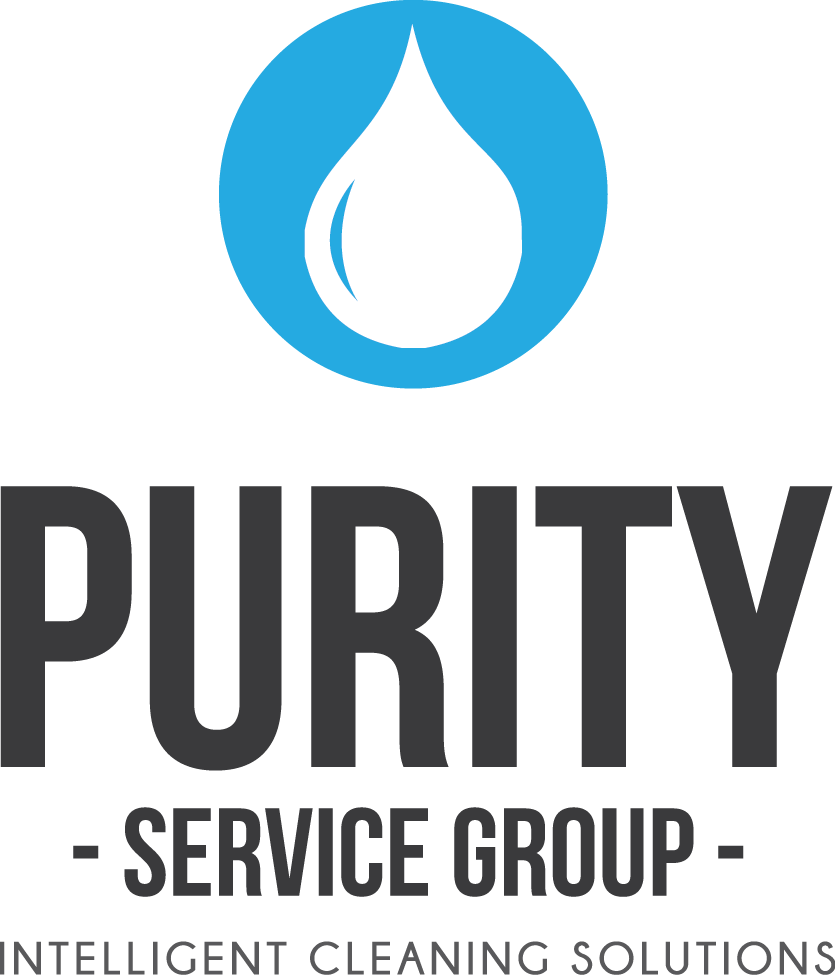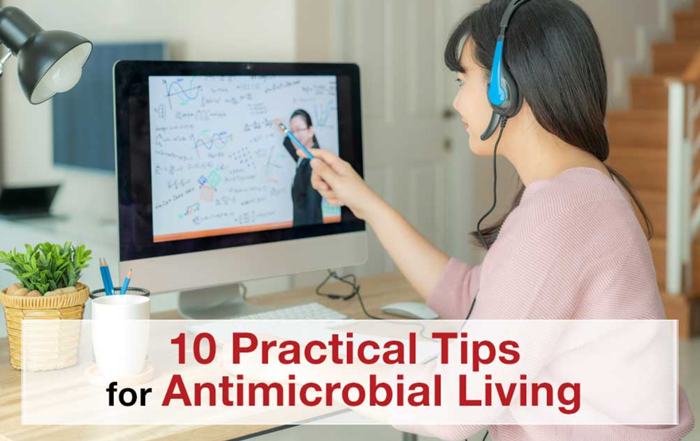Emerging infectious diseases such as the novel human coronavirus remind us how vulnerable we really are. When surrounded with directions to stay at home, wash your hands often, and stay 6 feet away from everyone, you may start to wonder why we don’t live like this all the time. Certainly, common colds and seasonal flu cases would sharply decrease if everyone always followed similar directives. Luckily, there are some proven ways to keep yourself healthy. By making a few simple behavioral changes, you can easily prevent the spread of many infectious diseases. Here are 10 ways to adopt smart habits for ongoing antimicrobial living.

Wash Your Hands Frequently and Well
Yes, it’s just as important to include this in your daily life once the current pandemic is over. Did you know that microbes can live on surfaces anywhere from a few minutes to several months? From your office phone to door handles, viruses and bacteria responsible for illnesses can be left behind by a sick person, and hang around long enough for you to pick them up on your hands.
Until recently, the vast majority of people don’t know the best way to effectively wash their hands. The CDC recommends washing thoroughly and vigorously with soap and water for at least 20 seconds, followed by hand drying with a clean towel or air drying. Traditionally, the suggested song to sing was “Happy Birthday” to ensure you washed long enough, but now people have gotten creative with 20-second song snippets.

Cover Your Mouth When You Cough or Sneeze
Even if you aren’t sick, it is important to contain those coughs and sneezes. Even if it is caused by allergies, you can share disease-causing microbes long before any symptoms of illness begin to show. Coughing or sneezing can spread these germs through microscopic droplets in the air. A tissue is best, tossed afterward. If you end up using your hands, wash them or use hand sanitizer immediately.
Don’t Share Personal Items
In kindergarten, you were taught to share your toys, but keep your hands to yourself. Now we need to keep our personal items to ourselves! Water bottles, coffee mugs, towels, razors, handkerchiefs, and nail clippers can all harbor bacteria, viruses, and other microbes that cause diseases. Whether it is flu season or not, be aware of what you’re touching and sharing.

Keep Your Hands Off Your Face
It doesn’t take long to notice how often most people touch their faces or mouths. From covering a yawn to licking a finger to turn a page, we are constantly putting our fingers to our faces. Many microbes prefer the mucus-covered surfaces in your nose, eyes, and mouth. Infections can be easily prevented by avoiding touching these areas.
Use Safe Cooking Practices

Many people know what it’s like to have food poisoning or other kind of food-borne illness. They frequently happen due to poor food preparation and storage habits. Many cases of “stomach flu” in adults are really food poisoning. Microbes thrive on virtually all food items, and more so on foods left at room temperature.
Refrigeration inhibits the growth of most harmful microbes. To be safe, refrigerate foods within two hours of preparation and toss any food left out longer. Wash your hands before preparing food. Keep your countertops sanitized, use separate cutting boards for raw meats and vegetables, and wash all fruits and vegetables well prior to eating. Be aware of food handling at BBQs and potlucks and keep yourself and your friends and family safe.

Get Vaccinated
Your immune system is designed to remember previous infections. When your body recognizes a microbe it has seen before, it enhances the production of white blood cells and antibodies to prevent a recurrence. By getting vaccinated, you enhance your body’s defenses against contracting the disease by introducing the microbe at a small level to establish that memory. Getting immunized protects you and everyone around you.
Travel Safely
If you’re headed for a foreign country, be sure to read up on the health concerns in the area. Infectious diseases can easily be picked up while traveling. If the water safety is questionable, If your travel destination is one where water is questionable, remember to use bottled water for drinking, brushing your teeth, and washing foods. Watch out for ice cubes made with native water! Avoid raw vegetables and fruits in favor of those that have been cooked to kill any microbes that could make you sick. Fruits with a peel are good, but wash your hands between peeling and eating. Many countries have a list of required and suggested immunizations that you should follow. Don’t assume you will be able to find the necessary medications and supplements.
Be Aware About Animals
Infections that can spread from animals to people are called “zoonotic diseases” and are more common than most people realize. Wild animals can carry diseases such as rabies or bird flu and fleas and ticks can spread plague and Lyme disease. Make the area around your home unfriendly to rodents. Teach small children in your household to be cautious when encountering wild animals. Pets should get regular check-ups and up-to-date vaccinations. Clean litter boxes frequently (unless you’re pregnant!), and keep small children away from animal feces. Then remember rule #1 and wash your hands afterward.
Keep Up With Accurate News
Now more than ever it is important to know the facts. You need to know how to keep yourself and your family safe and healthy. A good understanding of current events can help you to make wise decisions about traveling or other recreational activities. The Center for Disease Control (CDC) provides information on the latest outbreaks and travel advisories.

Keep Your Home and Work Space Clean and Sanitized
SafeHandles tapes and sleeves continuously emit silver ions that inactivate microbes and inhibit the growth of microorganisms such as bacteria and viruses. SafeHandles are proven effective against most harmful bacteria present in everyday life such as E.coli, Legionella, Pseudomonas, Salmonella, S.aureus, and Aspergillus Niger. The PURE Antimicrobial Spray inactivates coronavirus on surfaces within 30 seconds. Our electrostatic sanitization technology provides an unparalleled technique to effectively sanitize large areas or hard to reach places with a fine mist of antimicrobial particles.
Looking for more tips for an antimicrobial living? Check out the 12 things this microbiologist does.
If you’d like to learn how to introduce SafeHandles into your life, give us a call at (414) 481-9302 for a free consultation!

